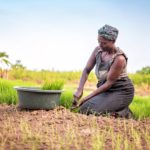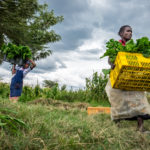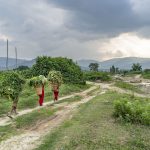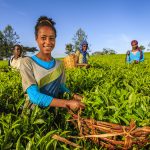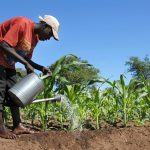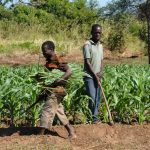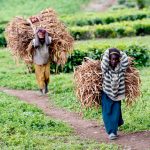The majority of the population in LICs depend on rain–fed agriculture for livelihoods, which means the timing of most activities is dependent on the rainfall calendar and pattern. This has obvious implications on the timing of other events that reduce labour or make it hard to carry out heavy agricultural workloads. One such event is…
Agriculture
Taming Counterfeits Markets with Consumer Information
Access to quality inputs is critical for boosting agricultural productivity. However, quantitative research (Tjernström et al., 2017; Bold et al., 2017; Ashour et al., 2019) and news reports (Muchiri, 2019; Okinda, 2019) have documented that the quality of agricultural inputs—such as seeds, fertilizer, and pesticides—is often low in rural African markets. The inability of buyers…
Seasonal Migration and Agricultural Labour Markets in Nepal
In rural agrarian economies, the period between planting and harvest is often a “lean season” when labor demand and wages fall, and the price of staples rise. The landless poor reliant on agricultural work on others’ farms are especially hard hit, and many millions of laborers and their families worldwide suffer from seasonal hunger. This…
Relaxing Seasonal Constraints to Improve Labour Productivity
Despite increased investment and international competition in agriculture, small-scale farming continues to be the most common economic activity in many developing countries. In Zambia, 60% of the population lives in rural areas, where 78% of the population were employed in agriculture in 2012 (Zambia Labor Force Survey, 2012). Rainfall patterns in Zambia allow for only…
Advancing Data Capacity for Policy Innovation in Sudan
The objective of the Sudan Labor Market Panel Survey (SLMPS) 2019 is to facilitate better understandings of labor market dynamics and outcomes in Sudan. Our goal with the SLMPS 2019 is to collect high-quality and reliable data sufficient for indepth, multi-dimensional analyses of economic and labor market issues in Sudan. The need for high quality…
Labour Migration and Structural Change in Rural Labour Markets
The project consists of two parts. Transitions out of agriculture and into other sectors of the economy are a necessary part of economic development. In Africa, some of the traditional routes out of agriculture- through the domestic industrial revolution, a “green revolution” in the agricultural sector, or trade reforms that stimulate industrial growth- have not…
Food Constraints and “Ganyu” Labour
Small-scale farming continues to be the principal source of employment and income for a majority of the population in low-income countries. Zambia is no exception: in 2008, 80% of employment was in agriculture. Even though Zambia has recently been re-classified as lower middle-income country primarily due to its large copper and cobalt exports, most Zambian…
Public Works Programs and Farm Household Behaviour
Public Works Programs (PWPs) are important tools for social protection. At the time of the beginning of the project, there were 167 PWPs in 29 sub-Saharan Africa. There are short-term and long-term PWPs. Short-term PWPs can stabilise consumption in response to individual or aggregate shocks. Long-term programs, on the other hand, are forms of insurance.…
Measuring Labour in Farm Households in Africa
In low-income countries, work in household owned and managed farms account for a large share of the labour force. Yet, to date, there is very little research on the approaches to measuring farm labour. Typically most measurements of farm labour involve a cumulative number representing a wide range of activities. For example, male labour is…
